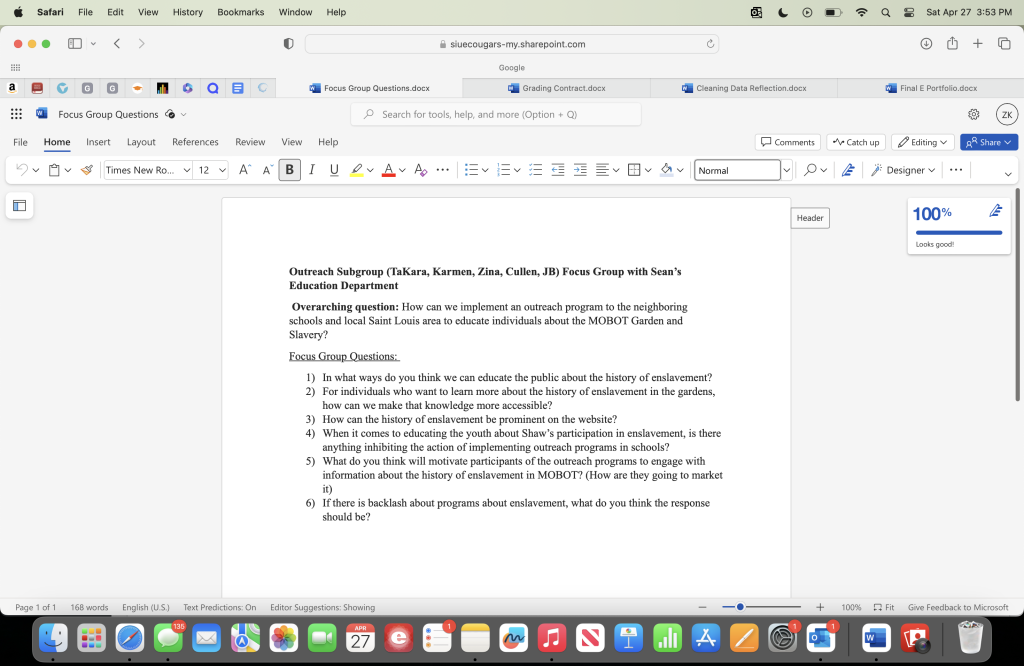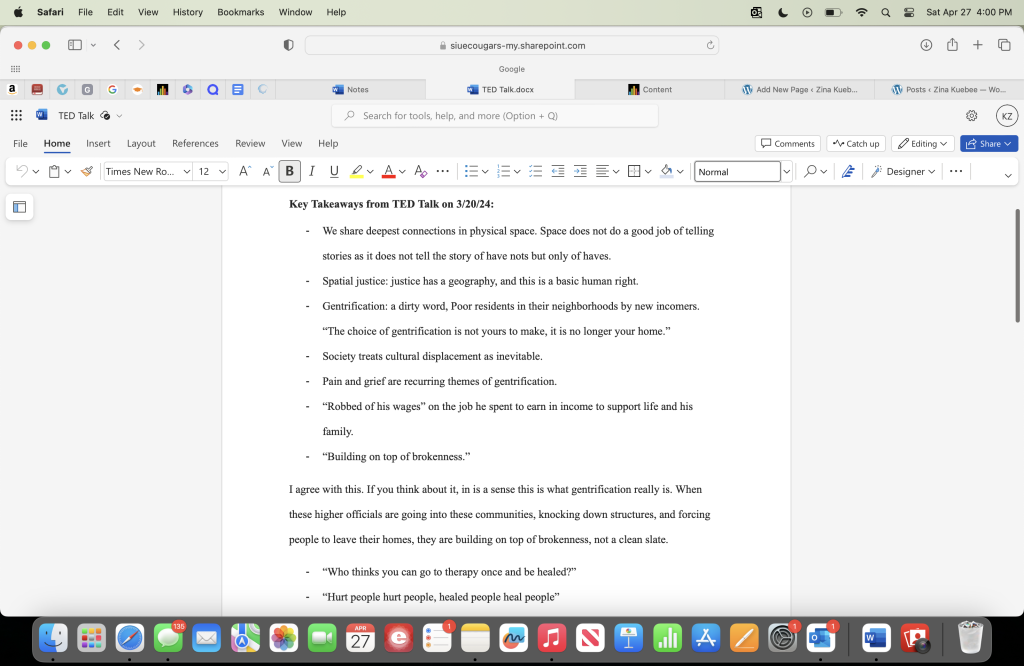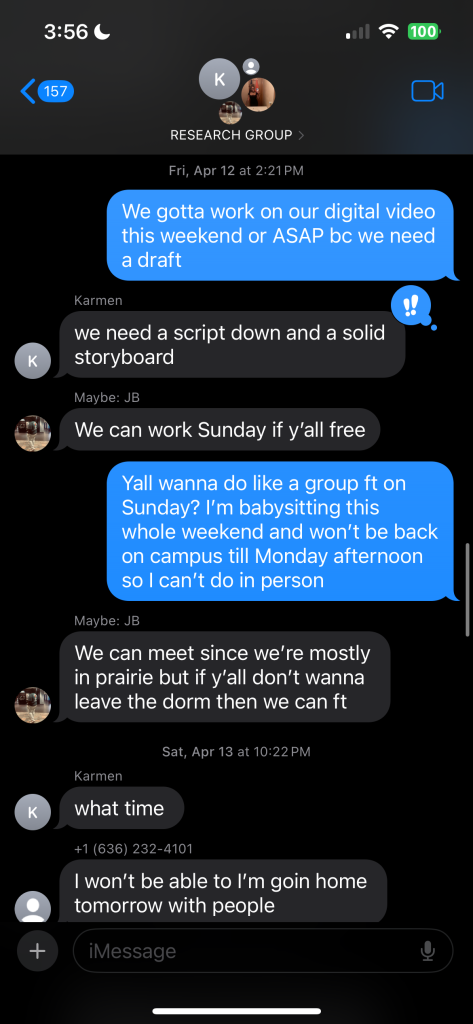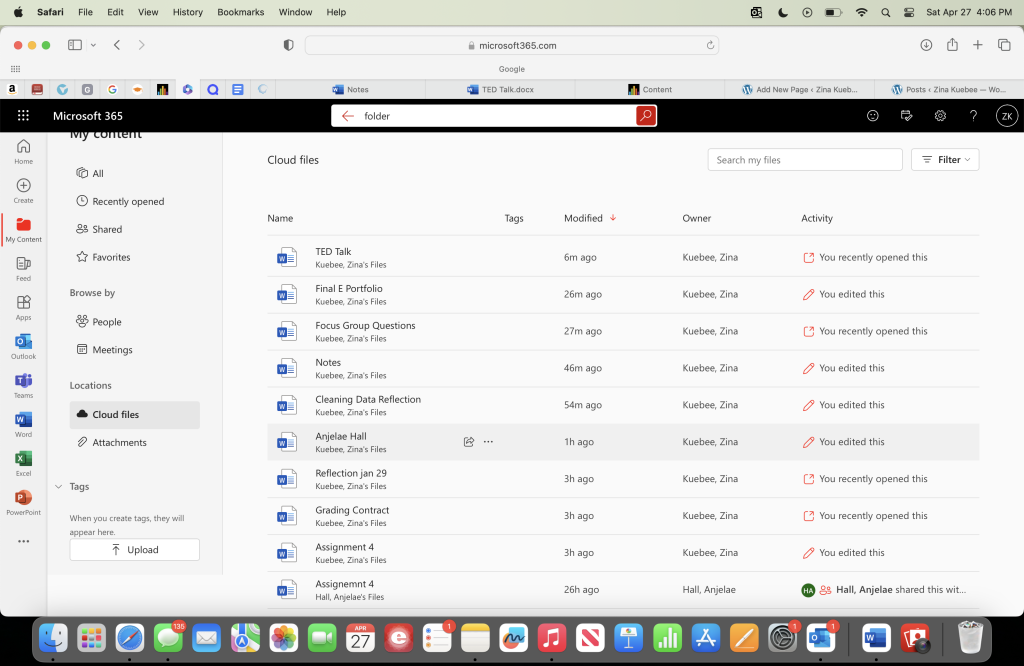Dear Dr. Jack,
During the second semester of CODES, I have learned a lot about not only skills I can apply in my research teams and CODES but also lifelong skills I can take with me outside of school. I learned more about myself and my strengths and weaknesses. My ability to comprehend more scholarly texts has improved my information literacy and my ability to sift through research and sources. There were certain times where I did not fully understand tougher texts because I could not differentiate between what was essential and what was not essential. Now, with learning how to annotate, it has helped my comprehension skills. The goal I excelled most at was being able to adapt and apply a deep understanding of multiple worldviews, experiences, and power structures while initiating meaningful interaction with other cultures to address significant global problems. When having discussions in class, before speaking and adding my own input I form statements that are open minded, and I keep a world view. I can engage and hold meaningful educational talks and debates with my peers. As far as a goal I can keep working on is being able to read using an appropriate lens and can engage in a continuing dialogue within and beyond a discipline or a community of readers. To reach my fullest potential, I will continue to annotate and elaborate more upon certain pieces that I highlight.
9b. Identifies and evaluate multiple approaches for solving problems (30%).
Reflection: In our subgroups, we were supposed to formulate questions based off the survey responses we received. My group and I forgot to do so. When MOBOT came to class to listen to our questions and give us feedback, Takara, Karmen, and I formulated our interviewing method and questions before it was our subgroup’s time to present our questions. We made a shared Word document where we typed our questions.

4a. Adapts and applies a deep understanding of multiple worldviews, experiences, and power structures while initiating meaningful interaction with other cultures to address significant global problems (15%).
Reflection: Reflection: During a source analysis we had in class about slavery and teaching hard history, we all had meaningful and deep discussions. We talked about how people teach slavery with reenactments, when we first were introduced about the topic of slavery, the difference between equality and equity, etc. This was a conversation where an open mind and seeing things from an unfamiliar perspective was essential. When adding my own personal input and insights, I made sure to add my own personal experience with the teachings of slavery and when my knowledge started to expand and my thoughts of if and when slavery should be taught and when doing so, I respected contradicting ideas. Because this was a conversation in class, I was unable to provide evidence.
11c. Reads using an appropriate lens and can engage in a continuing dialogue within and beyond a discipline or a community of readers (20%).
Reflection: When we talked about Henry Shaw in class and in the gardens, when making comments I made sure to be extremely cautious because what we are doing is very ambiguous. There are many feelings and emotions about slavery. Also, during the source analysis is done in class, being that some of the texts and TED talks are harder to break down I like to annotate and depict key pieces that I think are important. In class, we watched a TED talk called, “What if gentrification was about healing communities instead of displacing them?” I really enjoyed the TED talk being that my hometown, Saint Louis South City is a huge example of gentrification, so it resonated with me. When watching it in class, I took notes about what stood out to me.

12c. Works independently toward goals by contributing and meeting deadlines (20%).
Reflection: One way I made sure that I worked independently towards goals by contributing and meeting deadlines was reminding my subgroup of the work we had to get done before the due date. I texted my subgroup letting them know that we needed to meet whichever way was most efficient so we could get our final digital videos done.

8a. Uses clear organizational patterns and is skillful at presenting content cohesively (15%).
Reflection: To reach my goal of being able to use clear organizational patterns and is skillful at presenting content cohesively is doing my work in Microsoft. When I use Microsoft, I automatically save it as a files, so they do not get lost. This helps me when it is time to present them to another individual.
